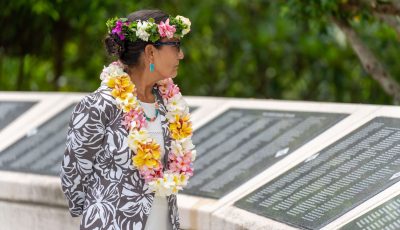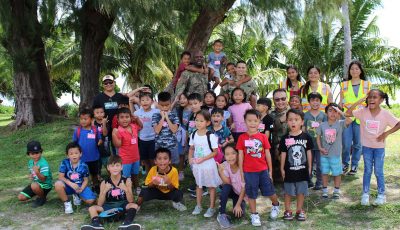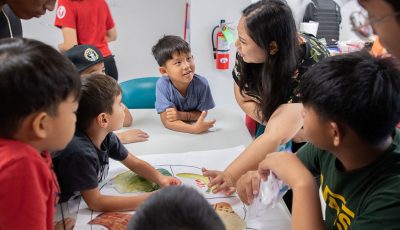Disposition of public land
Thoughtful folks have floored my senses on an issue that has eluded my mind since 1978. They asked who owns the public land throughout the archipelago. The simple answer is: The Indigenous People.
Next, then why are some government agencies granted land that enable them to make money from indigenous land? Had to dig back the genesis of the decision.
Apparently, delegates to the first NMI Constitutional Convention acquiesced to the arrangement without much thought to actual landownership. Even they are not owners of the land! Therefore, they should have allowed for negotiations that leaves disposition of public land solely to DPL.
The current arrangement robs indigenous landowners of money being made by government agencies in the lease of public land under their charge. This constitutional anomaly must change! Are these agencies owners of public land? Are they required to submit money made to MLPT? It’s the money of the indigenous people, folks!
No matter how you dice it, delegates never had the authority to issue land grants. That they braved ignorance is not a reason to dispose of indigenous land. That they made it a constitutional provision doesn’t legally change the definition of indigenous landownership either. We want disposition of our land done legally!
Ownership confusion must be resolved once and for all by realigning management, use and disposition of indigenous public land. Nobody owns public land other than the indigenous people!
Severing: The threat by the FSM to sever ties with the United States piqued interest throughout the region, especially those that have already relocated from the country.
The FSM national legislators pointed out cuts in funds under the Compact that was done unilaterally by the U.S. in the midst of a binding agreement. It seems U.S. action was gift-wrapped in arrogance that infuriated FSM leadership. They pointed to the Compact, basically a treaty, between two sovereign governments. It’s a matter of fiduciary responsibility.
The U.S. must abide by the pact from a holistic perspective and totality of its relationship with the FSM. Can’t employ AWOL on provisions that are especially sensitive.
Be that as it may, islanders leave home primarily for the education of their children and opportunities that are scarce back home. Moving to a new place is very difficult but nothing stops their aspirations for greener pasture.
Loss of culture: There’s a resurgent sentiment about indigenous culture. Interesting, though, how we assault the same from dawn to dusk.
The last vehicle to perpetuating what’s known as indigenous peoplehood (our unique identity as a people) is assaulted from the first break of dawn.
A survey taken in recent past found that 90 percent of Chamorro households use English as the means of communication. It seems a perfect recipe to bid Chamorro adios. Its non-use coupled with the invasion of modern technological devices like iPhones usually found today in the hands of young kids fast tracks the death of the vernacular.
PSS has done a superb job teaching the vernacular in the classroom. But its lessons already once removed from its primary domiciliary—the home front. In short, relegating it to the classroom is to teach it as a second language. Isn’t it the primary lingo of indigenous kids? Shouldn’t education of our vernacular begin at home?
There’s nothing wrong learning the business and career language in English. But this need not shove aside what makes us unique as Chamorros. Weren’t we born with it? Is there a reason to skip it altogether? Isn’t this a parental duty?
I have nothing but admiration for those who pick up the responsibility to instill the use of our language among our children. It’s a healthy start that gives kids an idea of who and what they are in a multicultural setting. It’s a tough job when the current of events head in the opposite direction.
This effort must be used as widely as possible. The survival of our language and what’s left of our cultural tradition is reliant upon what we do henceforth to ensure it lives forever more. We have a language; let’s use it. There are cultures where its own language is missing 200 years ago with regret that its people never learned their native tongue. Let’s not turn shipwrecks out of negligence! Let’s revive it! Let’s begin at home!



























